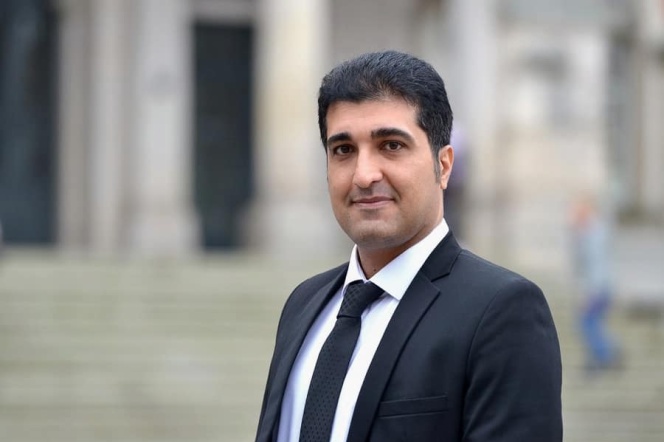Date added: 2022-11-16
The first defended PhD thesis in the new education system

Mohammad Malikan, PhD, was educated in the discipline of Civil Engineering and Transportation. The promoter of his doctoral thesis was prof. Victor Eremeev. The reviewers of the work were:
• prof. Janusz Badur, PhD, DSc, Eng., from the Institute of Fluid-Flow Machinery of the Polish Academy of Sciences
• Katarzyna Kowalczyk-Gajewska, PhD, DSc, Eng., professor at the PAS from the Institute of Fundamental Technological Research of the Polish Academy of Sciences
• prof. Wojciech Sumelka, PhD, DSc, Eng., from the Poznań University of Technology
He came to Poland in November 2019 and immediately started his doctoral studies. The public defense of his doctoral thesis took place on 26 October 2022.
– I chose Poland for my scientific development, initially because it is here where I found the promoter of my future studies, but I also felt that the culture of this country would make me happy to live and work here. I was not mistaken, says Dr. Malikan.
The research subject of the scientist in his doctoral dissertation was small-scale structures in micro and nanomachines. This is a development of the subject of his master's thesis, which he defended at the Azad University of Mashhad in Iran.
Nowadays, the use of small-scale structures in micro/nanomachines has become more and more widespread. The most important applications of such small-sized parts are in micro-electro-mechanical systems (MEMS) as well as nano-electro-mechanical systems (NEMS) as actuators, sensors, and energy harvesters. For example, nanosensors are nanoscale devices that measure physical quantities and convert these to signals that can be detected and analyzed. On the applications of micro/nanosensors in civil engineering, one can state that nanosensors can be developed and used in construction to monitor and/or control the environmental conditions and the materials/structures' performance. As a detailed example, nanosensors can be used to monitor concrete corrosion and micro-cracking. The smart sensor can also be employed for advanced structural health monitoring in bridges and other structures. In this regard, understanding the mechanical properties of such structures in various environmental and physical situations is seriously required.
Nanostructured materials can also be high-strength reinforcement for advanced composite structures. Usually, as principal elements of MEMS and NEMS are thin-walled elements, they are modeled as beams, plates, and shells. Thus, the mechanical properties of these structural elements at small scales are of serious interest to the actual mechanics of materials and structures. It is well-established that material modeling of structures at small scales requires a proper enhancement of the classic models. For example, some size effects should be forecasted. These effects could be described on the base of nonlocal models of continua such as stress- and strain gradient elasticity. In addition, it is worth to mention about various coupling effects, such as flexoelectricity and flexomagneticity, which are also size-dependent and observed at the nanoscale. For example, flexoelectricity is a general property of all dielectrics and could be dominant at small scales.
Thus, this thesis has been devoted to performing new mechanical analyzes of thin-walled structures based on nonlocal models and representing new findings. In fact, there are vast unknown issues in the field of mechanics of micro/nanosized elements. An effort has been made to represent all of the analyzes regarding the mechanics of magneto-elastic micro/nanoscale structures through the nonlocal approach. In particular, the analysis has been done on the investigation of the piezomagnetic-flexomagnetic responses of micro/nanosensors in connection with influences of various internal/external conditions.
Plans for the future
PhD Malikan currently works at the Faculty of Civil and Environmental Engineering at the department of Mechanics of Materials and Structures headed by prof. dr hab. inż. Magdalena Rucka. His current scientific plans concern nanocomposites; composites reinforced and improved by nanoparticles.
– During my doctoral studies, my research was more theoretical, now it's time to put it into practice - he emphasizes. – Currently, I am trying to employ micro and nanoparticles on macro scale to make advanced and smart composites.

